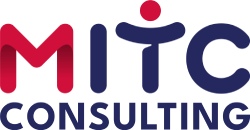If you are a foreigner and want to become self-employed in Switzerland, there are a number of steps to follow and conditions to fulfil.
Many administrative documents have to be provided, even after the initial registration.
There are deadlines to be met, and there are subtleties depending on whether you are from a border country, an EU or EFTA member state or neither.
This is where the simplicity of the wage portage (portage salarial) system can be extremely effective and useful.
However, if you prefer the self-employed status, where you invoice your customers directly, we explain what you need to know in this article.
In this article, we’ll look at how to become self-employed as a foreigner in Switzerland. What are the steps involved in becoming self-employed in Switzerland (as defined by the OASI), where do you start and what are the differences?
📌 For details on the legal forms for setting up a business in Switzerland, visit this article.
Becoming self-employed in Switzerland (EU/EFTA national): Sole proprietorship
Step 1 is to have your self-employed status recognised by the OASI (Old Age and Survivors‘ Insurance) compensation fund.
It’s not that easy to obtain: you need to justify a solid client list, for example (at least 3 ongoing clients).
Une foi affilié, vous devez aussi vous affilier à l’DI (Disability Insurance) and pay a contribution to the loss of earnings compensation scheme (EO)
🔗 For more details, visit the official website for the self-employed in Switzerland.
They are all related to your turnover.
This same turnover will also determine whether you need to register with the Commercial Register. From CHF 100,000 upwards, this becomes compulsory.
Next, you need to apply for a Swiss work permit (also known as a residence permit) from the cantonal migration and employment authority in your canton.
For example, for Geneva, it happens here.
(Keep this organisation in mind: you will have several interactions with it if you wish to be self-employed in Switzerland or to set up a business in Switzerland for a foreigner).
If you are an EU/EFTA national, a B permit is sufficient. It is valid for 5 years and renewable.
Good to know: foreign nationals working in Switzerland for less than 90 days a year do not need a work permit. It must only be announced via a compulsory online form. Please note that you have up to 8 days before the start date of your business to submit this declaration.
Taxation will depend on the specific features of your canton, the nature of your business and the length of time you have been in business.
But as we know, the country has one of the lowest tax rates in Europe. And that’s why Switzerland is such a magnet for entrepreneurs.
🔗 Being self-employed in Switzerland also means having to insure yourself against accidents and unemployment. Click here to find out more.
Becoming self-employed in Switzerland as a cross-border worker
In addition to proximity, countries bordering Switzerland, such as France, Germany, Austria and Italy, benefit from the advantages of EFTA.
This means, for example, that a French self-employed person in Switzerland can benefit from the same rights as the Swiss when buying land. This is interesting because it concerns property used for commercial purposes.
He is also not obliged to sell his property if he leaves Switzerland.
However, if you want to be self-employed in Switzerland, you will first need to apply for a cross-border work permit (Permit G).
To get it, all you need to do is have a business address in Switzerland and submit your business plan. In other words, the viability of your project.
Finally, your business activity will determine whether you need a simple domiciliation or a fully-fledged business premises.
In all cases, you will be required to return home at least one evening a week.
Another important piece of information: as a self-employed person, you must have at least 3 ongoing clients to be eligible for a work permit.
If you don’t meet a condition, you can turn to a wage portage (portage salarial) company, which relieves you of all these strict and complex administrative constraints.
Going the wage portage route
As we have just seen, setting up your own business in Switzerland and becoming self-employed is no easy task, even for cross-border workers.
Your main alternative will then be to opt for wage portage.
As you can read in our article on how wage portage works, this service involves a tripartite relationship and two contracts:
- An employment contract between you and the wage portage company
- A service provision contract between the wage portage company and your client
In addition to the security associated with an employment contract, being employed by a wage portage company offers another considerable advantage to foreigners: it is the “portage” company that takes care of obtaining a work permit for you.
There’s no need to go through all the red tape involved in becoming self-employed in Switzerland!
As a worker under wage portage, you enjoy the security of an employee but also the freedom of a self-employed person. In other words, you are bound by an employee contract with the wage portage company, but it is also up to you to choose your clients and agree on the duration and price of your projects, without having to worry about accounting and other administrative tasks.
Once an agreement has been reached, all you have to do is put your client in touch with your “portage” company, which will take care of the contract and everything else.
And that’s it!
Obviously, wage portage involves an intermediary (the wage portage company) and therefore a financial burden for you. However, time is money, and wage portage will save you a lot of time.
So, self-employed or wage portage?
Interested in wage portage?
To get a better idea, take a look at our article on the main differences between wage portage and the self-employed status.
Or just contact us – we’ll be delighted to answer your questions.




